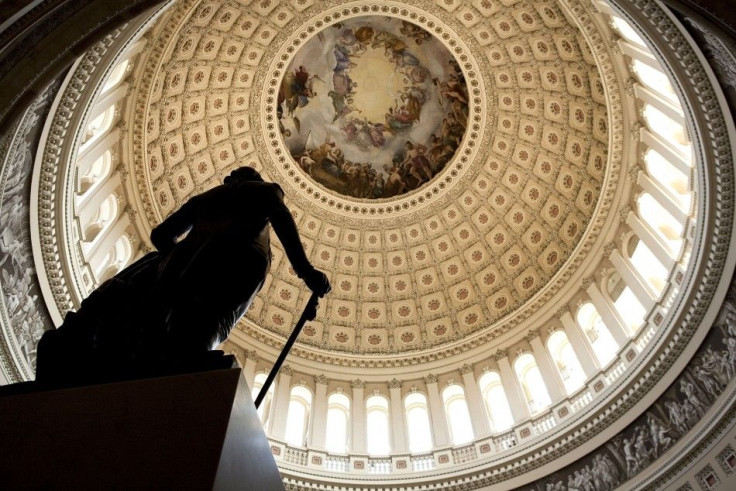Republicans Seek $2.2 Trillion in Deficit Cuts

Republicans in Congress are calling for $2.2 trillion in deficit-reduction, including significant cuts to healthcare programs for the elderly and poor along with tax changes that they argue would boost the economy, congressional aides said on Thursday.
The plan offered by Republicans who serve on a congressional super committee tasked with slashing deficits calls for cuts to the Medicare and Medicaid health programs for the poor and elderly and other health and welfare programs.
The panel of six Republicans and six Democrats have been negotiating behind closed doors, but the details of the Republican plan that have emerged show the two sides far apart over the issue of tax increases to reduce the deficit.
Aides said the Republican plan claims hundreds of billions of dollars in savings by lowering corporate and individual tax rates. They say that would increase economic activity and bring in more revenue. Democrats have argued that position is a non-starter for them.
In contrast to a Democratic plan that has an almost even balance between spending cuts and tax increases, House of Representatives Speaker John Boehner said the focus of deficit reduction efforts should be almost exclusively on cutting benefit programs.
He rejected the idea of additional defense spending cuts.
When you look at what is yet to be done by the super committee, almost all of that is going to fall in the area, I think, of mandatory spending, which is more than two thirds of the budget. It is time for us to do our work there, Boehner told reporters.
PLAN DRAWS FIRE
Mandatory programs range from Medicare and Medicaid to the Social Security retirement plan and food stamp program for the poor. It also includes federal workers' pension plans.
Congressional aides, who asked not to be identified, said the Republican proposal has $785 billion in mandatory spending cuts, including $500 billion for Medicare, $185 billion for Medicaid and $100 billion for other health programs.
The Medicare cuts include premium increases for beneficiaries, according to a congressional aide.
There are an additional $400 billion in spending cuts for other mandatory spending programs that include government retirement programs and food stamps, according to other aides.
The proposal also includes a controversial plan to change the way annual benefit increases are calculated for Social Security and other government programs to reflect a lower rate of inflation than the current formula.
The Republican plan calls for tax changes, but would dedicate any revenues generated by closing tax loopholes and other breaks to reducing overall income tax rates, the aides said.
The Republican plan immediately drew fire from Democrats. They complained it was designed more to please Grover Norquist, who heads the conservative Americans Tax Reform, which opposes tax increases to reduce the deficit.
Their offer is a joke, said a Democratic aide who declined to be identified.
The Republican offer came after Democrats on the panel proposed on Tuesday about $3 trillion in savings over 10 years through an equal mix of spending cuts, which also include cuts for Medicare and Medicaid.
The super committee has been asked to develop a plan for at least $1.2 trillion in deficit cuts over 10 years. If it fails to reach a deal an equivalent amount in automatic spending cuts would be triggered.
Boehner said he wanted to avoid the automatic spending cuts, which would fall heavily on the defense sector, traditionally favored by Republicans.
(Additional reporting by Thomas Ferraro; Editing by Paul Simao)
© Copyright Thomson Reuters {{Year}}. All rights reserved.




















